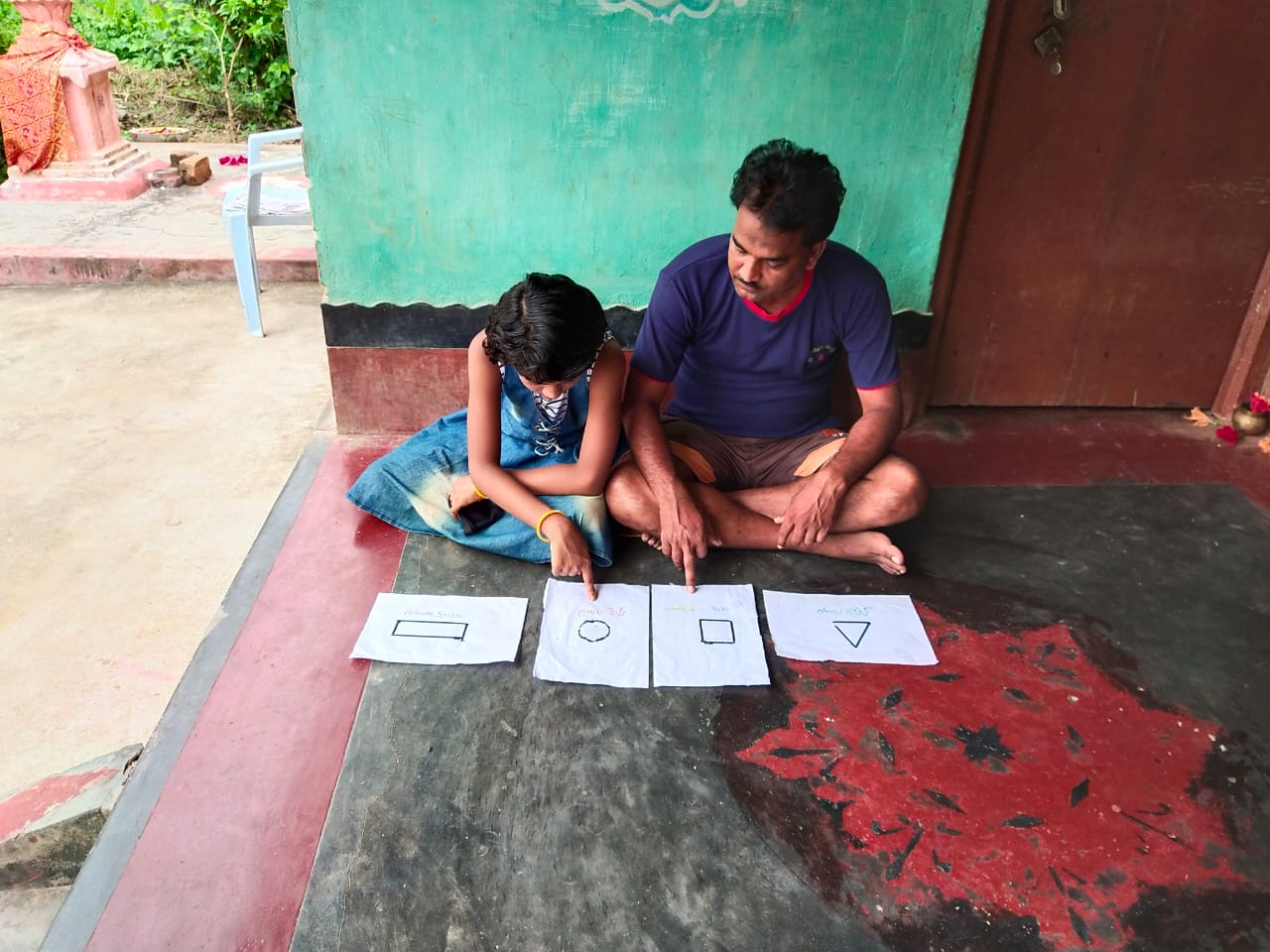According to the annual ASER Report 2021, 67.6% of Indian children have smartphones in their families, and 74% have some form of access to them. While continuously teaching children using smartphones is challenging due to irregular access, it can be used to empower parents to spend time with their children and support their learning.
“I could not afford a smartphone last year and was worried that Sulagna would be unable to learn anything as her school was closed“, says Rajesh, a parent from Kendrapara.
“I was apprehensive if I would be able to support Sulagna’s learning when I was on-boarded to ThinkZone’s home-based learning program by Sulagna’s school teacher. But the activities shared on my small phone were so simple and engaging that I started enjoying practising the same with Sulagna. In one of the activities, she had to note down the names of all her family members and what they liked to eat. She made a list with so much enthusiasm, and I helped her write the correct spellings for these names in the list. In another activity, she had to identify shapes using daily objects. I will continue practising these activities at home with Sulagna even when school reopens as I feel proud that I can contribute to her learning in a way she can enjoy.”
ThinkZone’s home-based learning program is a free, low-cost technological solution that engages parents of primary school children in their children’s learning journey, regardless of their income. The solution utilizes voice calls, SMS, and WhatsApp to deliver structured, personalized learning content backed by independent research to develop foundational skills in young children.
The learning crisis in India has been further aggravated by the COVID-19 pandemic, which has exposed a significant digital divide within the education system. Most interventions involve teaching higher-grade children with internet-based digital content that is out of reach for most children. Existing solutions are not reaching young children aged 3-10 years, and primary schools are still closed in many states of India.
ThinkZone’s home-based learning program provides daily remote instructions in vernacular language to support parents in activity-based learning content for a few minutes daily, developing a positive parent-child relationship that improves learning outcomes. Additionally, trained school teachers supplement the SMS and voice calls with weekly live phone calls averaging 15-20 minutes, providing direct guidance on the learning activities.
The program also includes an offline-based mobile app solution for teachers to track progress and tweak call responses. Parents can call a toll-free number to repeat content, and children can engage in the content by hearing activities on the same number and speaking directly to educators.

Parents can understand and implement user-friendly modules regardless of their literacy level. During the program, children are provided with activity-based content based on their learning levels and subjects, using daily-use home-based resources to explain concepts. The program aims to develop positive parent-child relationships and enable parents to shape their children’s learning skills from an early age.
An independent RCT evaluation of the existing home-based learning program found a statistically significant improvement in children’s mathematics and language (Odia) learning levels by as much as 12.3% and 13.8% over the average baseline scores in five months. Evaluations have also revealed that 77% of parents are receiving calls and are actively involved in the program, and 81% of these active parents are regularly doing activities with their children.
Digital and smartphone-based solutions have been implemented globally to reach out to children or support teachers and parents directly. Low-tech solutions have rarely been deployed by private entities or by the government at the policy level at scale for effective parent-teacher-student engagement.


